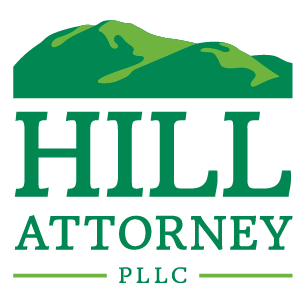Students are taught that it is appropriate and ethical to quote someone else’s material, as long as the quote is accurate and includes appropriate attribution to the correct source or author. It's only when trying to pass off something somebody else wrote as their own work—plagiarism-- that students get in trouble.
Many people leave school thinking that the same principle applies in the rest of life, that is, that it’s okay to use other people’s work as long as you provide appropriate attribution. Unfortunately, with rare exception, this is wrong.
Section 107 of the U.S. Copyright Act provides an exception to a creator’s exclusive copyrights for ‘fair use.’ The fair use provision states that use of a copyrighted work or image “for purposes such as criticism, comment, news reporting, teaching (including multiple copies for classroom use), scholarship, or research, is not an infringement of copyright.”
Throughout your school days, you were quoting resources and cut-and-pasting images into reports under the statutory fair use exceptions for teaching, scholarship and research. School work fits the copyright exception for fair use, so the only concern was whether you were violating academic honesty policies for plagiarism.
Out in the non-scholastic real world, however, using all or even a small part of someone else's song, lyrics, novel, poem, advertising copy, or other copyrighted creative work without the copyright holder’s permission is a copyright violation. Yes, even if you put their name on it.
The non-scholastic fair use exceptions are quite narrow: criticism, comment, and news reporting. If you are a journalist writing about an upcoming band’s concert, or publishing a review of a new music video, you can use small excerpts from the bands’ lyrics, sound or video recordings for the purposes of illustrating your review or article. If you are writing a book review of a new poetry collection, you can insert excerpts from the poems. These qualify as fair use.
Even within one of these fair use categories, a use of a work may not be considered ‘fair use’. The statutory factors used to determine whether any particular use of a work is ‘fair use’ include: “(1) the purpose and character of the use, including whether such use is of a commercial nature or is for nonprofit educational purposes; 2) the nature of the copyrighted work;(3) the amount and substantiality of the portion used in relation to the copyrighted work as a whole; and(4) the effect of the use upon the potential market for or value of the copyrighted work.”
So if I am a teacher, and take a whole textbook down to the copy shop and have it photocopied for all of my students instead of having them buy the book at several hundred bucks a piece, I have violated the book author’s copyright even though it’s for educational purposes: I used the entire book (factor 3), and deprived the author of the income from selling those copies of the book (factor 4).
If you are a songwriter, or a band, it is nearly certain that you are not a duly organized and IRS approved non-profit educational institution. You write and perform music most likely with the full intention of making money at it (even if you don’t make a lot of money at it). If you are a writer or poet, again, you are almost certainly not a non-profit educational institution. If you are performing, recording, selling CD and digital downloads, getting paid for gigs, or playing for free at places like farmers markets where your role is to help other people make money, your music is what the copyright statute means by, 'of a commercial nature.' If you have monetized your blog, published or self-published your novel, non-fiction or poetry books, then regardless of whether your writing income barely reaches the double-digits per year, you are engaged in work “of a commercial nature”.
If you are inserting pieces of other people's tunes, lyrics, novels, poems, movie lines, or anything else under copyright into your music or writing, you will not be able to successfully claim that you were protected by the fair use doctrine. You will be committing copyright violations--and you just might get sued. Those re-makes of classic 80s tunes you hear cut into modern hiphop or pop commercial tunes today? Those songwriters purchased a license to do that--or, more likely, the copyright was already owned by the same music industry corporation that did the re-make.
To lawfully use segments of other people’s lyrics or tunes in your music, or to use lyrics or words from a novel or poem in your music, you must find the copyright owner, and get their permission to do so. In another post, we’ll talk about buying the appropriate license to record a cover of someone else’s song; for small-batch recording of cover songs, the U.S. Copyright Office sets a standardized fee schedule. If you plan on using samples or segments of someone else’s music, or incorporating lyrics or words from written works, however, there is no set fee schedule. The cost will be whatever you and the copyright holder negotiate. In some instances, the copyright holder might give you permission for free; in other cases they may require a large sum of money and a complex written agreement. That’s their right as the copyright holder.
Just remember to license before you splice, or get permission before you cut and paste. Even with attribution.
